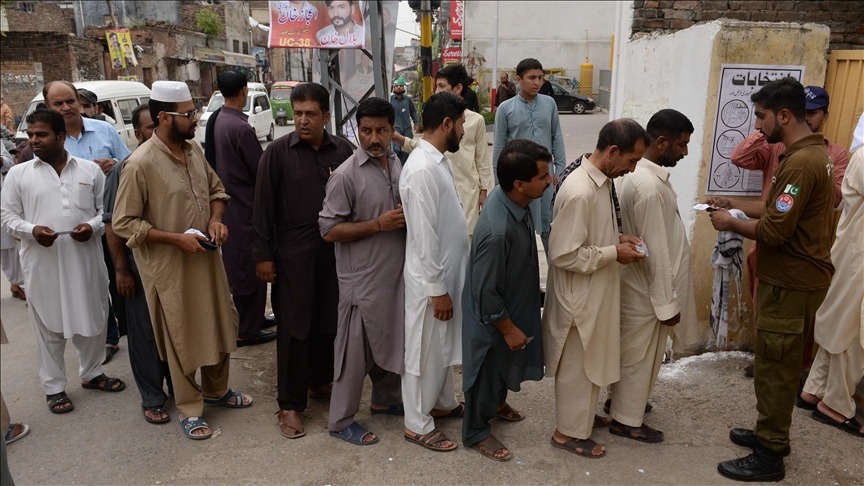Opposition rejects amendments to election laws, announces to challenge legislation in country’s top court.
KARACHI, Pakistan (AA) – Pakistan’s parliament on Wednesday approved amendments to the country’s election laws, including electronic voting and voting rights to the Pakistanis living abroad in the next general polls slated to be held in 2023.
The legislation, vehemently opposed by strong opposition, was passed in the joint session of the parliament – National Assembly and Senate – summoned by the president in the capital Islamabad.
Earlier, the amendments had been approved by the treasury-dominated lower house – the National Assembly – but rejected by Senate, the upper house, where opposition enjoys a majority, forcing the government to call a joint session.
According to the country’s Constitution, if the two houses do not agree on legislation or a bill, then a joint session of the parliament can be summoned by the president to approve or reject that.
The parliament also passed a bill providing the right to “review and reconsideration” to an alleged Indian spy, Kulbhushan Jadhav, to bring into effect the judgment of the International Court of Justice (ICJ).
In July 2019, the ICJ in its judgment had asked Pakistan to make effective legislation to provide the right to review, and consular access to the alleged Indian spy.
Jadhav – who Pakistan says was a serving officer in the Indian Navy – was arrested in 2016 in the town of Mashkel in the Balochistan province, a few miles from the border with Iran.
A Pakistan military court sentenced him to death in April 2017 on espionage and terrorism charges.
The ICJ, however, ruled that Jadhav be treated under the Vienna Convention, asking Pakistan to provide him consular access and continue to stay his execution.
– Opposition’s protest
The opposition alliance, including the Pakistan Muslim League (Nawaz) of the three-time Premier Nawaz Sharif, and the Pakistan People’s Party (PPP) of the slain Prime Minister Benazir Bhutto, rejected the amendments, accusing the government of planning to “steal” the next elections.
Dozens of opposition lawmakers gathered in front of the Speaker’s rostrum and near the treasury benches, and chanted slogans against Prime Minister Imran Khan who was present during the parliament’s proceedings. They later tore the copies of the bills and walked out of the session in protest.
Talking to newsmen outside the parliament, opposition leader Shehbaz Sharif announced that the opposition would challenge the legislation in the Supreme Court as, according to him, the government has violated the Constitution and the parliamentary norms.
Calling the electronic voting machines to be used for the next elections “evil and vicious machines”, Shehbaz, a three-time chief minister of the country’s largest Punjab province, accused the government of “bulldozing” the legislation.
He said the government has not even consulted the opposition parties over the key legislation, which shows its nefarious designs.
Addressing the parliament, Foreign Minister Shah Mahmood Qureshi rejected accusations by the opposition, calling it a “historic day”.
The legislation, he contended, will make the electoral process “clean and transparent”.
The ruling Pakistan Tehreek-e-Insaf (PTI) has long been demanding the voting right for millions of overseas Pakistanis.

